#chevannes
Explore tagged Tumblr posts
Text



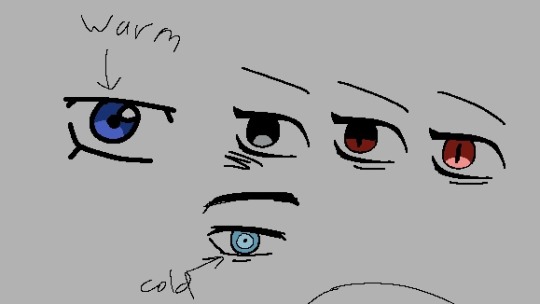

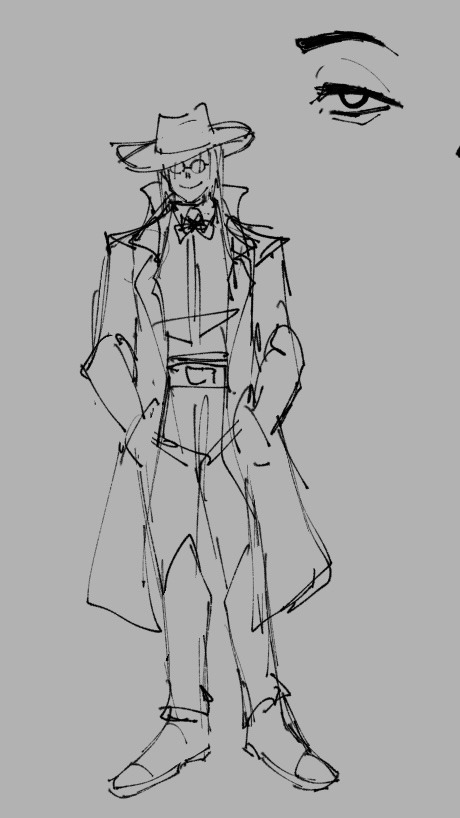















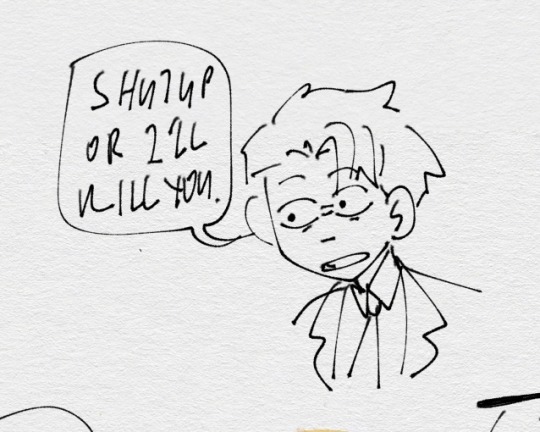

Woe my ocs be upon you
#[ogart.png]#[project:cursed]#*cracks knuckles* OKIE NAME TAGGING#pyrrha halloran#chevannes#lorcan halloran#muriel halloran#libitanarius#tatsuma mendoza#elvira mendoza#zhou ning#mu qingbei#charlotte everett#david ferrín#brian spencer#luka emmers#aegis#yana chevannes#[artdump.png]
2 notes
·
View notes
Text

Ed and Lorraine Warren (with Robert David Chase) - Graveyard - St. Martin's Press - 1992 (design by Paul Chevannes)
#witches#ghost hunters#occult#vintage#paranormal#ghosts#investigation#graveyard#ed and lorraine warren#robert david chase#st. martin's press#paul chevannes#hauntings#new england#cemetery#1992
40 notes
·
View notes
Text
A prominent women’s chess player has accused a fellow player of rape and sexual harassment as she warned a “toxic culture“ of misogyny and sexually predatory behaviour plagues the chess community.
Sabrina Chevannes, a women's international chess master, said she was raped at a chess tournament by another contestant.
The 36-year-old, who quit professional chess in January 2017, told The Independent the incident happened when she was black-out drunk as a teenager.
She added: “I woke up in the linen room of the hotel on a table. I was in so much pain. I didn’t quite understand what had happened.
“While playing chess I was in so much pain I could barely sit down. Him and his friends were high-fiving about it.”
Ms Chevannes, who won ten British chess titles, said sexual harassment, sexual assault or discrimination against women has taken place at every chess tournament she has ever attended.
She has endured racism from fellow chess players, with people often assuming she had cheated when she did well in tournaments, she added.
She told of an incident at a chess tournament when a man who was a chess master groped her.
“I was 11 years old,” she recalled. “I wanted to have a picture with him because he was famous in this world. He posed for the picture but did this thing where he put his hand down my back touching my butt. Then he turned around and winked at me.”
She encountered him again at another chess event when she was a teenager where he told her he had seen her on the front of a chess magazine, she added.
“He said ‘You are developing so well’. I said ‘I was at my best rating’, and he said ‘No, I don’t mean developing like that’,” Ms Chevannes recalled.
“He said he may need another copy of the magazine as he said he had worn his down with all the night time reading. He looked at me in a creepy, lecherous manner. When he met me when I was 18, he said ‘now you are legal in all countries’.”
The former player said she would actively avoid tournaments where he was playing. She noted he sexually propositioned her a few years ago - asking her to go back to his hotel room.
Ms Chevannes said: “He used very racist misogynistic language to my face.”
She told of another incident where a different chess player offered to let her sleep in his hotel room as she was tired from her flight but couldn’t check into her room until mid-afternoon.
“He wasn’t in the room when I was sleeping but I woke up to find one hand down my pants and one hand in my bra,” she added. “He did the same thing again when I was in the same house as him and lots of others in the chess community.”
Ms Chevannes, who now coaches chess, said she did not report any of the aforementioned incidents to the police at the time as others warned her she would not be believed.
But she explained social media posts she recently shared about her alleged experiences had been seen by the police who are now looking into her claims.
Female chess players have come forward in recent weeks to make allegations of sexual assault, violence and harassment from male players.
Earlier in the month, 14 of France's top female players wrote an open letter, “denouncing the sexist or sexual violence they have suffered” in the chess community, with over 100 women in chess signing the letter in the space of only five days.
Ms Chevannes described the chess community as an “insular world” with a rigid hierarchy where people are judged by their chess abilities and women are perpetually belittled.
“Women are seen as inferior, they genuinely believe men are superior to women in every way - including intellectually,” she added. “If you beat someone, it's described as you raped them.”
1K notes
·
View notes
Text

‘Literary Journalism essay’
Prompt: Highlight the struggles and challenges faced by a marginalized or under-represented group in Jamaica.
In Jamaica, there's a lot of talk about loving plus-sized women. You hear it in dancehall songs that celebrate the "fluffy girls or the Thickaz dem," roadside vendors and taxi men will shout compliments like " Champion, muma heavy or simply just thickaz." Comedians even make jokes about body size. However, for plus-sized women, there's a deeper truth beneath all the playful banter: this so-called love often isn't real acceptance, but more of a show for entertainment and convenience.
Take twenty-two-year-old Crystal Gordon, for instance. Sitting under the humanities tree at Uwi, she often watches slim girls stroll by in their crop tops and ripped jeans, wishing she could dress the way they do without feeling out of place.
"They all say they love fluffy women, but that's not true," she remarks, gazing into the distance.
"They only love you if you look a certain way... big bottom, flat belly, small waist. And of course if you’re light skinned, If you don't fit that image, then you’re not a nice looking fluffy girl."
Jamaica's views on body image are quite complicated. Curves used to be seen as a sign of wealth and fertility, but now, thanks to Western media, the story has changed. Being plus-sized often puts you on the outskirts of what is considered attractive. The body type is tolerated but never fully accepted. Affection in public comes with strings attached, while private judgment continues unchecked.
Rickayla Chevannes, a body-positive young lady from portmore, comments on this contradiction saying "People think that because there are songs praising plus sized women, it's all good," she explains. "But the same guy who calls you sexy on the street wouldn't want his friends to know he's with a big woman. And when you go into a boutique, it's like you become an alien amongst women."
Shopping for clothes can be tough for plus-sized women. Most stores stop at size 12, and anything larger is either oversized, out of style, or tucked away in a section called "full figure." Rickayla recalls a visit to a popular mall where a sales associate looked her up and down and said,
"Nothing here can fit you, mi love." She left, trying to brush off the hurt, but that has never stopped her from embracing her body. Instead she shops online and there she gets even more stylish clothes without the rude comments.
The casual fatphobia doesn't stop there. Weight-related jokes are common in schools, workplaces, and even at family gatherings. Crystal shares, "You always hear those little snide comments, like 'Sidung a the front fatty' when entering a taxi or ‘ Yuh nuh need fi put on no more weight.' They present it as a joke, so if you get upset, they call you 'too sensitive.'
Nobody takes the time to actually research reasons why people may be bigger than average. Sometimes it’s caused by health conditions, medication and simply just genetics. Crystal states that “My slim friend can eat 10 burgers in a day and not gain a pound but if I do it, I gain 10 pounds.” That in itself just shows that people are not the same and the sooner society realizes that is the better we will all be as a people.
Even the healthcare system adds to the struggles. Many plus-sized women find that doctors often overlook their concerns, attributing every issue to their weight. Crystal remembers going to get help for intense migraines and being told, "You need to lose some weight, man." No tests were conducted, no referrals provided; just assumptions made about her health.
Yet, despite the lack of genuine support, plus-sized women like Rickayla and Crystal find ways to create safe spaces. WhatsApp groups, small Instagram accounts, and late-night chats with trusted friends become havens where they can feel comfortable just being themselves.
While Jamaica might celebrate songs about loving fluffy women, for those in larger bodies, the divide is clear and often painful — a constant reminder that the nation's affection might be loud in music, but it falls silent in real life.
0 notes
Text
Reference
Beckles, H. (1995). Sex and Gender in the Historiography of Caribbean Slavery. In Shepherd, V., & Brereton, B. (Eds). Engendering history: Caribbean women in historical perspective.(pp.38-48). Palgrave Macmillan.
Beckles, H. (1995). Black Masculinity in Caribbean Slavery.In Shepherd, V., & Brereton, B. (Eds).Engendering history: Caribbean women in historical perspective. (pp.803-811).Palgrave Macmillan.
Beckles, H. (1998). Centering Woman: The Political Economy of Gender in West African and Caribbean Slavery. In Reddock, R., & Barrow, C. (Eds). Caribbean Portraits: Essays on Gender Ideologies and Identities. (pp.93-114).
Chevannes, B. (2001). Learning to Be a Man. Kingston: (pp.15-27).UWI Press.
Hooks, Bell. (2004). "Understanding Patriarchy.” Arizona. arizona.indymedia.org/news/2004/07/20613. (p.1)
0 notes
Text
INSIDE THE ARCHIVES: AN INTERVIEW WITH HERBIE MILLER
Out of my personal archives here is an interview I conducted with Herbie Miller – current Director/ Curator of the Jamaican Music Museum (JaMM) – on 27 November 2006. If my memory serves me well, I had been introduced to Herbie Miller a few days before by the late Professor Alston “Barry” Chevannes, sociologist and authority on Rastafari. When I met Herbie, he was completing his PhD in cultural studies at the University of the West Indies (UWI), Mona, Jamaica. His doctoral research dealt with Jamaican ska trombonist Don Drummond. Some excerpts of this interview appear in my book, Vibrations jamaïcaines (French language), but it has never been fully published until now. So, fasten your seatbelt and let’s dive into this deep conversation dealing with various topics of interest such as Bob Marley, Peter Tosh, Bunny Wailer, Rastafari, Mortimo Planno, Jamaican politics, the unsolved assassination attempt on Bob Marley, the evolution of Jamaican music and the Rolling Stones among others.
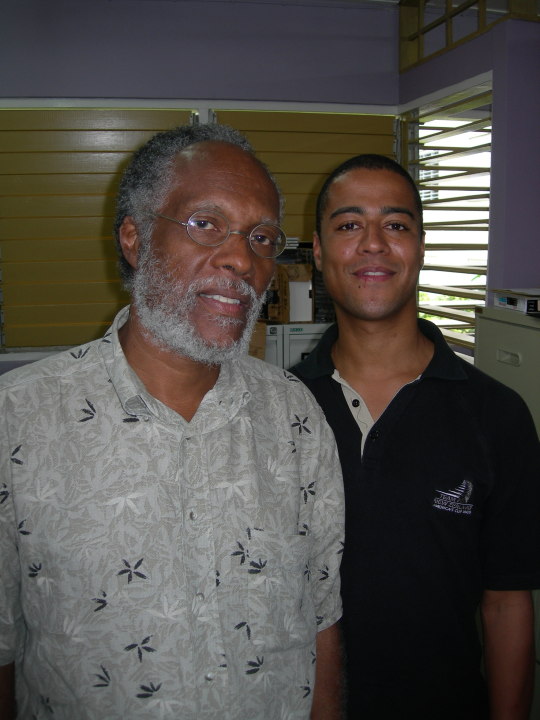
Herbie Miller and me in his office at UWI, 27 November 2006. © JKD
JKD: Hi Herbie, nice to meet you!
Herbie Miller: Nice to meet you Jeremie.
First of all, can you just introduce yourself and tell me the position you hold here at UWI?
Well, I’m Herbie Miller. My position here is in the capacity of completing my own PhD in cultural studies. At present I’m a…God what they call it? There’s a word in some sort of Department, something I am, at this point I’m not even sure of what it is! (Laughs)
(Laughs). I heard that you used to be the manager of Peter Tosh. When exactly?
I managed Peter when he embarked in a sort of career from 1976 to about 1982-83.
Right. You know, Bob Marley, Peter Tosh and Bunny Wailer were friends but had a different personality. Can you tell me the main characteristics of each person and how they differed from each other?
Well, of course, you can see in both Marley’s work and his personality that he was really a thinking musician. He brought a lot of militancy and spirituality to his music. At the same time, he was quite outgoing, he was also quite reclusive. It all depended on what the situation was. He was outgoing in the sense that he went to public events, especially soccer. He went to night clubs and stuff like that. He was private in the sense that, to a great extent, Bob was very withdrawn and shy, I could say. He was quite aware of his stature and who he was and as a result he understood that in many ways he had to secure that self. He couldn’t just go out there as the average citizen. So in that respect he understood his position, his place and guarded it to some extent. Peter, on the other hand, was totally outgoing in every way. Peter was the type of person who went to football games and sport events as Bob and Bunny would. But he was outgoing in that he was a man of the streets. He was not shy, he would talk to people. His personality is perceived as one that is quite extremely militant if not revolutionary. To some, he was angry, to others he was jovial, critical, sensitive, generous, humorous, funny as hell, quite a complex personality Peter was. Bunny is perhaps the more reclusive, remains the more reclusive as a matter of fact [Editor’s note: Bunny Wailer was still alive at the time of the interview in 2006]. As all the fans know, Bunny was the first to give up being a fulltime public figure. He recorded, he was a great soccer player, he has his own community of followers and community in which he’s very relaxed. He was at the same time guarded and it’s perhaps to the extent that he has survived. So, three different types of videos. Get together the main one great if not the greatest unity as a single voice.
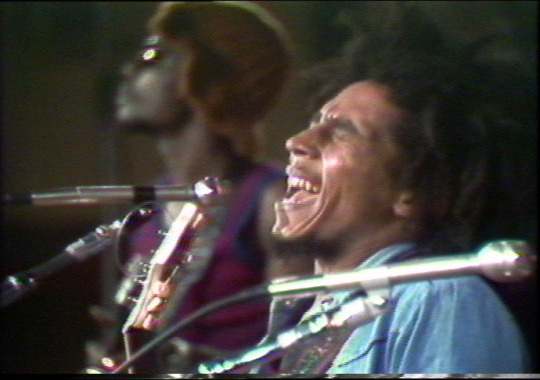
Bob Marley and Peter Tosh at Capital Records, 24 October 1973. © Screenshot from a film directed by Lee Jaffe and Leon Russell
Did they turn to the Rastafari faith at the same time?
I think they all of them embarked on the tradition and self discovery at about the same time. Bunny might have been ahead of Bob and Peter in that respect but I’m not sure. The biographies are out there, the biographic videos are out there, the testaments are out there, I wasn’t that close to know but I do know that all three of them defended the Rastafari faith strongly.
And were the three of them followers of Planno or was Bob Marley the only one?
I think all three embarked on the tradition under Planno’s guidance. I think Bob stick with it and maintains his close relationship to Planno the longest.
Then the relationship between Planno and Marley broke up at some point. Do you know why?
I haven’t a clue. I don’t know about that, no!
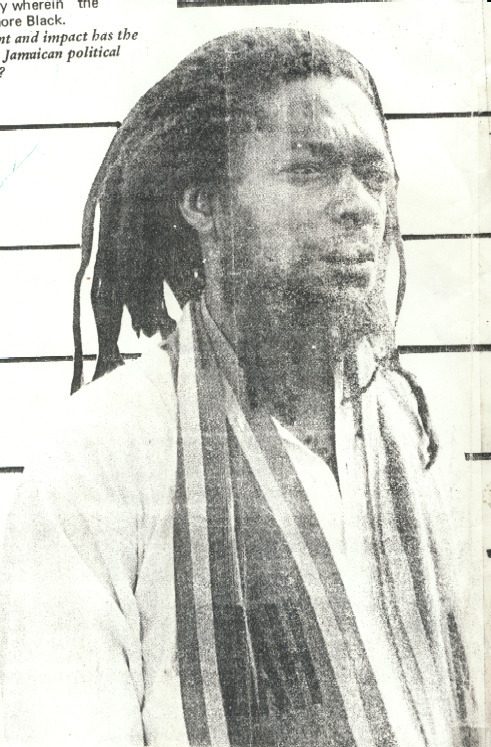
Mortimer Planno in Lagos (Nigeria), July 1979. © Tam Fiofori
So how do you explain that Bunny Wailer and Peter Tosh decided to quit the band after the second album?
Do I have to explain that? They have explained it over and over themselves. There are lots of interviews with Peter where he explains it. You know, Peter basically felt that the three of them were strong in the videos, correctly so. He also knew that as a group they were extremely strong but that the focus on the group had become the focus on Bob Marley. And Peter felt that he needed his own attention. In fact, Peter was the first of the three of them to record solo. He always recorded as Peter Tosh and he always recorded as a part of the Wailers. And it was not put any hard feeling that Peter decided to go on his own. Bunny, on the other hand, had philosophical reasons why he decided to quit. He just thought that he was up to the heavy tour and schedule and at some point felt uncomfortable with some of the places in which they had to perform.
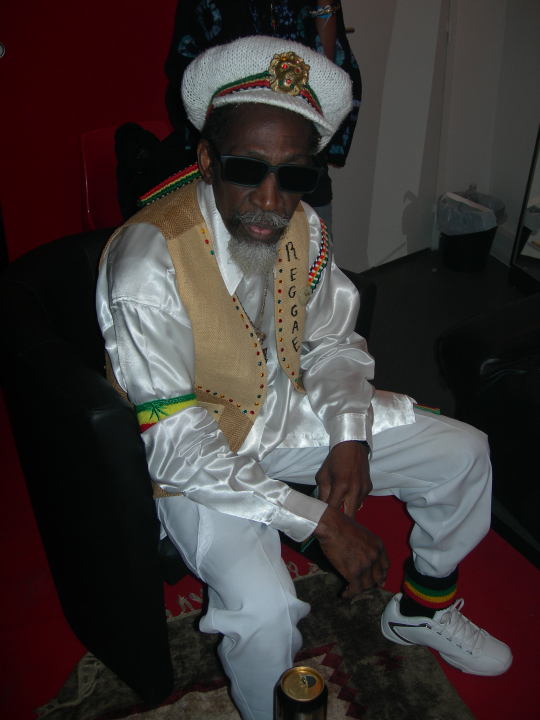
Bunny Wailer backstage at the Zénith Paris, 21 April 2007. © JKD
Do you think that in the 70s, politicians tried in a way to co-opt the Rasta movement and reggae singers?
By the 70s, Rastafari was going through and had gone through a series of oppression on behalf of different governments. And so by the early 70s, with the wind of change blowing in the air, of course it was an advantage for politicians to give some sort of recognition to Rastas; perhaps just stopping short of making the grand promises. And certainly with the closeness to the musicians, and the music, and the people that the politicians had at that point, particularly the PNP, they saw they could really utilize musicians and securing votes. And certainly the musicians reacted to it positively; they participated in political band wagons around the country. That featured some of the best artists of the moment.
"to the vast amount of poor people and sufferers and roots people and Rasta people and African-Jamaican-Black people down there on the ground nothing supersedes the Wailers"
And what was Peter Tosh’s point of view on this situation? Was he cautious regarding the links between politics and artists?
I think the fact that they performed for a particular party reveals a particular mindset or way of thinking or direction in which they thought the politics should head. So by the mere fact that they participated, you know, cautious in the fact that we all are cautious around election time to the extent that we are involved with it or not involved with it, but everybody gets cautious at that time. And so I imagine that, yes, they were cautious, but at the same time they thought that change was necessary and that they could provide people with a direction if they identify with a particular party and what direction that party could head.
You know, Bob Marley was about to be killed at the time of the Smile Jamaica concert. Do you think that there are some links between the election and this assassination attempt?
Of course the world of the streets is of such. The official opinion is that the verdict is still out. You know, it’s one of those things that happened. It’s in the past. It might not be totally settled in terms of who did what? Who sent whom? And so on. I certainly am not private to that information if it is, if it has been declared.
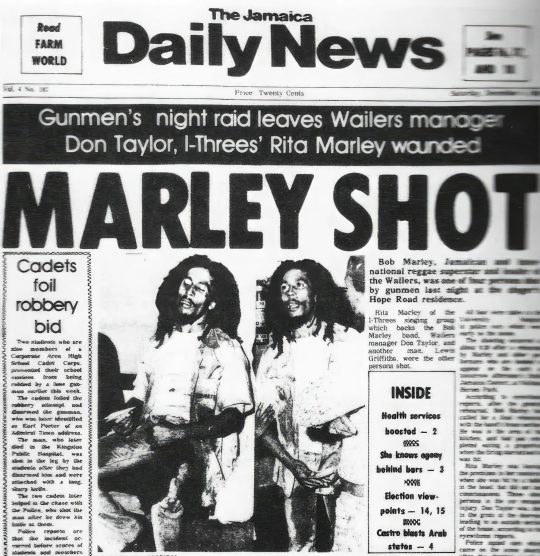
In the late 70s some say that the Wailers were more popular in Europe than in Jamaica. Is it true and if so, do you know why?
It depends on which Jamaica you are talking about! The Wailers have always been popular among a certain group of Jamaicans.
Which group?
The people, people of the streets. They have always been popular whether or not they were played on the radio or they were performing live or even if they were recording at all. The Wailers was the people’s group above every other group. By none! The people who they became popular to later on are those who initially rejected them, who had no use for them, no use for them until the same people talk about them in Europe and abroad accepted them; and say look “This is great!” Then these other set a folks basically up the band wagon. But the Wailers were never unpopular, never unpopular. No, they might not have been in the charts at a given time as others were and among a certain middle-class or elite, but to the vast amount of poor people and sufferers and roots people and Rasta people and African-Jamaican-Black people down there on the ground nothing supersedes the Wailers, none, at any given time.
What’s your general opinion on the evolution of Jamaican music and the new generation of artists?
I think that good things are happening, lots of great things are happening. Jamaican music has never been more internationally popular, meaning to say bursting into the charts, making waves on big radio stations, popping up outside of just the narrow so-called reggae category in the Grammys and all over. Jamaica is attracting musicians of all sorts coming into mix and deal with the music on the new level. They have always come, from the days of ska they have been coming but today it might be commercially much more popular than it ever was. Qualitatively speaking, the tourist is out, ska was not but “boogooyaga” music to the same people who later on embraced the culture because they control the airwaves, they control the newspaper, they control the print, they control everything. And Jamaican culture to them was not reflected in Rasta people and local aesthetics. It was reflected in a Euro-centric foreign taste across the board: clothes, food, music, whatever. To the poors, that be that’s what counted. From ska to rocksteady we still had visitors coming to the island, Paul Simon, Herbie Mann, Aretha Franklin etc. Reggae: Barbra Streisand, Joe Cocker, Eric Clapton, Taj Mahal and this goes on. And today with a new breed of music makers and music appreciators, they have hip-hop and rap and dancehall reggae. And those are the people; that’s happening today. The same people ant the same set of folks in the same Jamaican society are calling everything else but artists. That put them down, they say “this the sing, talk, chat, slackness and so on”. I don’t know, I don’t even understand some of what them say, all I know is the beat to most of the song really grab you. And if the beat grabs you at some points you try to figure out if you’re dancing to youth calamity or you’re dancing to glory. You know, young guys such as yourself, I’m sure, can relate to what’s going on, especially if you bash down class and race and barriers such as those that prevent people from all heartily accepting change. Because this really is changing, nothing stands still! Rock time music turning to boogie-woogie music turning to big band music, turning to bebop music turning to hard bop, along the way are the way up to the 60s, Coltrane and Ernest Goodman, at every point of that change there were people critics and some musicians who say that is crap. Louis Armstrong called Dizzy Gillespie Chinese music. So we’ll never get rid of that! Some classic reggae artist from the 70s, I’m sure, are calling this music trash. We don’t know, I don’t know! I am waiting to see out. But I know there are lots of good things out there.
But it seems that artists from the 70s like Max Romeo or the Gladiators are more popular in Europe than in Jamaica today. Why according to you?
That’s not a strange thing, you know? In Europe, 1960 soul artists are still making headline gigs. At home, they stay at home and watch TV. Nobody cares about them at home in America. I remember when…what’s his name again? He was doing in New Orleans a song called “Get Out of My Life, Woman,” I think Dorsey was his last name.
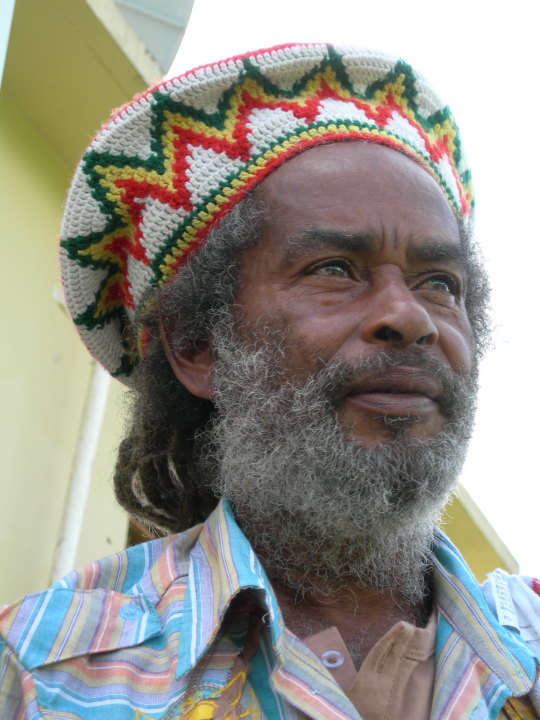
Max Romeo at home (Linstead, Jamaica), 21 November 2006. © JKD
Lee Dorsey?
Yes, that’s it, Lee Dorsey. He was a mechanic in America but a headline in Europe. Lee Dorsey was his name, a headline in Europe but a mechanic in New Orleans, who cares? Blues singers were the same, they could make a big gig over in England, Muddy Waters, Howlin’ Wolf,all of them, but in America nobody really cares. It’s the same thing with the reggae thing. Nobody cares about Burning Spear performing down the year, Jimmy Cliff just performed for the first time in many years. Most of these great artists in spite of…you see here is the cutting edge place, this is where the new trends take place. They establish things with a firm whole, they are over in Japan, they are over in Africa, they are in Europe, in South America, the classic guy that’s where they are. Soon or later, Buju, Capleton, Bushman, Sizzla, those I think are some of the stronger ones today. Certainly, in my estimation, they will become classic performers and whatever will replace them, somebody will be asking “You think that this music is as good as dancehall music?” “How come dancehall artists are not performing in Jamaica any more but only in these other places?” And that what will happen like everything else! Things change but there are all just ska children.
I’d like to have your opinion on another topic. You know, lots of artists sing about Africa and the back-to-Africa movement, but it seems that actually just a few of them truly go to Africa.
I think the song of Africa that comes out of reggae artists and that comes out in reggae songs is a way to deal with the fact that we, in Jamaica, especially those of us influenced by Rastafari’s thinking and Marcus Garvey’s thinking, have always seen Africa as the original homeland. I don’t think it’s so much that any of them necessarily have to or perhaps even want to live in Africa. I think they live in Africa inside of their heads. Once you can come to grips with the idea that they are sons and daughters of Africa, I think the level of comfort is a relaxed one. The tension arises when they can’t figure out who they are. The fact is that they are Jamaicans. The world view of that particular Jamaica is that is in Africa, not necessarily living in Africa or having to live there. They sing about it, about the past, the history and when Burning Spear says “Do you remember the days of slavery,” Spear isn’t asking as if to say “he read about it or heard about it,” he asks that question in such a way as if to say “I remember because I was there” and when he asks he wants you and us to remember as if we were also there because the fact is that we were there. So this is a sort of cultural, historic memory, a sort of collective memory if you will that allows that sort of language to emerge. Not I was told about it or I learnt about it or I read about it but I remember it! When Third World say “96 degrees in the shade” it’s like they know what they are talking about. They didn’t learn that in school and so on. Hence the relationship to Africa and colonization is a mental thing, you’re decolonising your mind and set yourself free. Marley said in “Redemption Song” “Emancipate yourself from mental slavery/ None but ourselves can free our mind.” So those are profound philosophical reasonings to deal with that situation. And that’s why they sing so much about it. Whether or not they go to Africa to perform is based on the fact that if you get invited to go perform somewhere you go. But artists don’t pick up themselves and just say “I want to go perform in Europe….” And of course Africa isn’t set up like that. The rest of Europe is perhaps set up and you can just pick up the phone and book an agent and blah blah blah. Probably where in Europe some African companies say “Man come play in my town…”..there is no big organized music industry in Africa to deal with it the way we deal in Latin America and Europe and Japan. Everywhere else you take a chance as long as you go. You feel it and for better or for worst you deal with it.
So I’d like to conclude this interview with a few questions on Peter Tosh. First, when you toured with the Rolling Stones, did they get along together?
They got along great, you know, they really got along fine. They were a bunch of crazy guys the Stones and… We toured together, we worked together, Peter was signed to their label, we ate together, we did things together… You know, the Stones basically brought Peter internationally so we had to be close. And that just came about because they wanted to sign Peter when he was available for signing at the end of his contract with CBS Records, now Sony Music. And they expressed that opinion through a mutual friend that Sony had. We negotiated to do them and I made the deal.
When did you tour exactly?
It was in the late 70s I believe. It was the year Mystic Man came out. I think it was around 77-79.
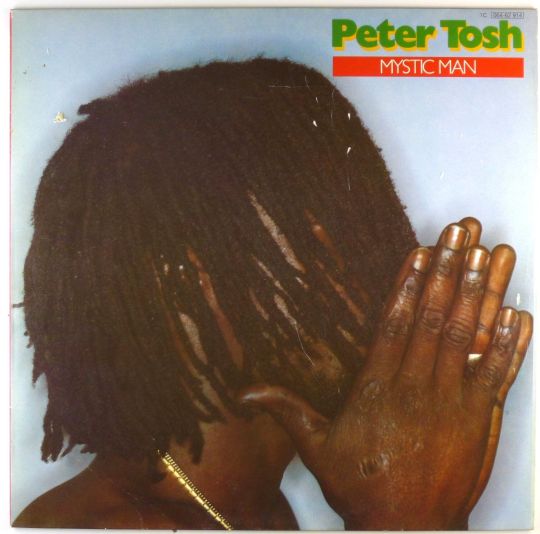
© Peter Tosh, Mystic Man, 1979, Rolling Stones Records - 1C 064-62 914
So it was good times?
It was real good times. It was a time when you could see growth, you could see the things moving from point A onwards, growth was visible.
And the Stones came to Jamaica?
Oh Yes. In fact, I think Keith had a place here and he still comes here. He came just to chill out and hang out with Peter and stuff like that.
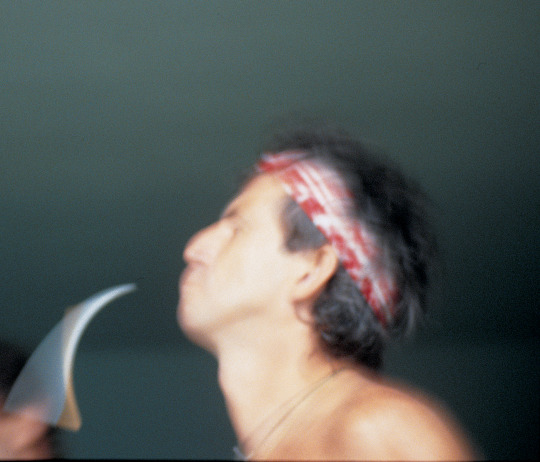
Keith Richards, Ocho Rios. © Lee Jaffe
Peter was as you said very radical and he also used to criticize the Establishment openly and stuff like that. Do you think that he might have been assassinated because of that?
Many theories fly around. I myself was not involved with Peter at the time that happened, unfortunately. It was an unfortunate incident. I don’t know what was happening with his new management people. What I do know is that there was some sort of stand off, he wasn’t recording, he wasn’t touring. They obviously wanted him to record and tour. I know that there was some sort of lawsuit that apparently he won. People demanded money at his house and…perhaps it was just a robbery. I’ve heard assassination theories, I’ve heard the government theories, I’ve heard the drugs theories that one I can without any doubt tell you Peter would not be involved with. Peter smoked weed, that’s it! Nothing else. He doesn’t sell it. He gives it away. He doesn’t trade in it and as far as I know, as long as I was with him, I have nothing to do with people who were involved that way. So all these arguments about Peter both somebody taking a rob from Peter, I don’t buy that.
My last question deals with his famous M16 guitar for sale on eBay [Editor’s note: in November 2006, Peter Tosh’s M16 rifle-shaped guitar had been posted on Internet auction site eBay before being called off]. May I have your point of view on that?
You can read my point of view, it came out, it was the second article about it in the Jamaica Observer. If you read this second piece which came out in the Jamaica Observer, some two weeks ago, you’ll see exactly how I feel about it.
You feel sad I suppose?
More than sad, I feel totally upset. When you’ll read it you’ll see exactly how I feel. Read it! (Laughs).
Thank you for your time Herbie.
You’re welcome Jeremie. You’re welcome.
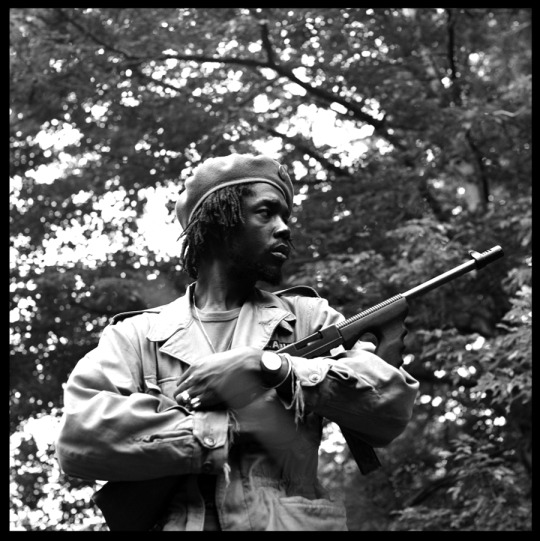
Peter Tosh, 1976. © Lee Jaffe
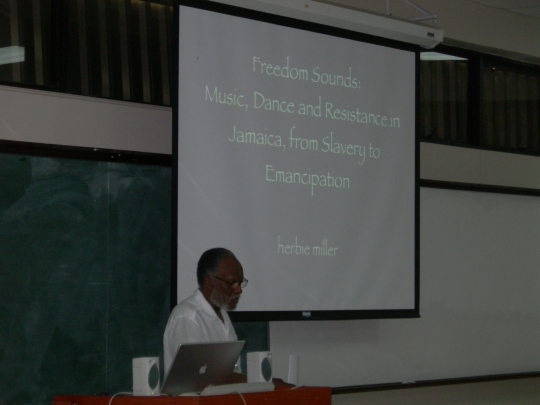
Herbie Miller giving a lecture at the ACS Crossroads Conference, July 2008. © JKD
© JKD, 27 November 2006, Kingston.
0 notes
Text
across time and space i'll always find you and beat your ass
#oc tag#aidan halloran#chevannes#beating the hell outta each other as bonding experiences#[borealis.txt]
4 notes
·
View notes
Text
Though you note to be joking in the tags, I do have things to say about that!
As far as the Chevy 500 goes,

I decided to consider pickup versions as derived vehicles (akin to how utes may be considered separate models from their sedan counterparts) and thus not strictly what the post was about, both because the post was already name-burdened enough without the likes of Grumett Pickup/SL, Saehan/Daewoo Max, Grumett Brisa et al, and because the task of getting a compelling read out of that post was already daunting enough as it was. Same reasons, really, that I didn't mention van versions, sad though I might have been to omit the wonderful name of Bedford Chevanne.

As far as the Chevy Marajó goes,

AAAAAAAAAAAAAAAAAAAAAAAAAAAAAAAAAAAAAAAAAAAAAAAAAAAAAAAAAAAAAAAAAAAAAAAAAAAAAAAAAAAAAAAAAAAAAAAAAAAAGH







Chevy Chevette Coupe
#i cannot fucking believe it#ENOUGH#how many aliens can you possibly need to fend off#chevy 500#grumett pickup#grumett sl#saehan max#daewoo max#grumett brisa#bedford chevanne#chevy marajó
153 notes
·
View notes
Photo

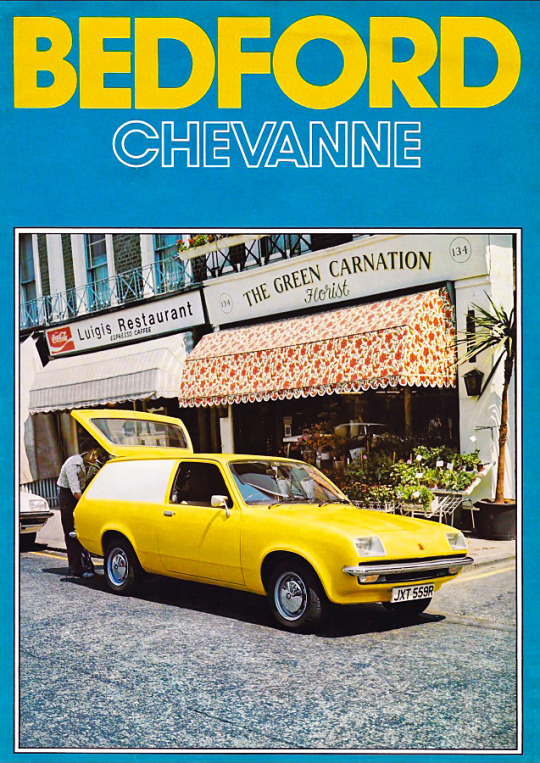

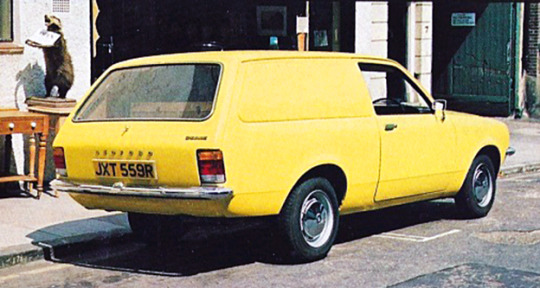
Bedford Chevanne, 1976. Bedford was GM’s commercial and truck division in the UK. The Chevanne was their light commercial van version of the General Motor’s T-car based on the Vauxhall Chevette
#Bedford#Bedford Chevanne#GM T-car#General Motors T-car#van#General Motors#Vauxhall Chevette#1976#1970s
108 notes
·
View notes
Photo







Most Underrated Female Guest Star in a Drama Series Patrice Johnson Chevannes in Pose Joan Cusack in Homecoming Miley Cyrus in Black Mirror: Rachel, Jack and Ashley Too Rachel Hilson in This Is Us Pamela Andlon in This Is Us Jennifer Morrison in This Is Us
#patrice johnson chevannes#joan cusack#miley cyrus#rachel hilson#pamela andlon#jennifer morrison#this is us#tis#pose#homecoming#black mirror#ashley too#rachel jack and ashley too#snubs#emmys#golden globes
28 notes
·
View notes
Photo






POSE - Episode 2x04
471 notes
·
View notes
Photo

1978 Bedford Chevanne
4 notes
·
View notes
Text
'Endgame' by Samuel Beckett at Irish Repertory Theatre
You don't want to miss 'Endgame' presented at Irish Repertory Theatre.
(L to R): Bill Irwin, John Douglas Thompson in the Irish Repertory Theatre’s Endgame (courtesy of Carol Rosegg) Nobel prize winner Samuel Beckett suffered years of rejection until his wife managed to sell his work which gradually put him on the map. Now we question how this rejection was possible because his work is timeless and exemplifies his genius. His particular greatness lies in his…
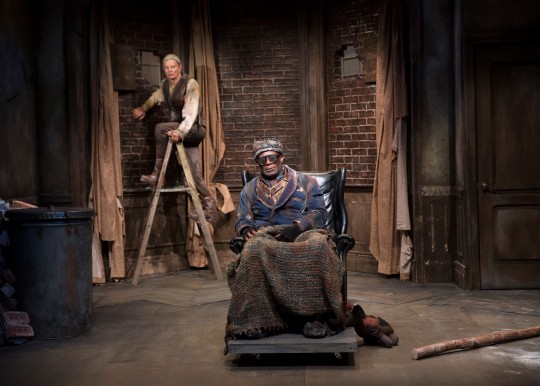
View On WordPress
0 notes
Text
Hopefully we can agree that while fishing and chess are also classified as sports, there is a huge difference between the reliance of physical ability in swimming or football versus chess.
Yet even so, males still find a way to sexually violate women and turn their "neutral, biological differences" into a weapon even in chess tournaments.
The rape and sexual assault of black female chess players aside, perhaps it was on me for not acknowledging within my original post that we also advocate for female-only sports because female human beings deserve the right to organize and have hobbies away from their violent and misogynistic oppressors. Chess and fishing are among some of the more misogynistic, boys club sports cultures out there. Women are vastly outnumbered in chess not only nationally, but globally—across borders and cultures. I wonder why that is?
And, just FYI, the chess divisions aren't even a matter of "men vs. women's" divisions. There is an "open category" (inclusive to both sexes) and then a women's only category. I can understand how that can be confusing since professional chess has been comprised of like 95% male chess players for ages.
We are not advocating for female-only sports because we "believe women are inherently not as capable as men based on biological differences of the sexes". We are advocating for female-only sports because we understand that there are neutral, biological differences between male and female people and yet sports and everything else are tailored to men's biological differences and treat the male sex as the default measurement. We are advocating for female-only sports because we've often been historically expected to prove ourselves by competing against men within the systems they create.
We are not being "transphobic", "sexist", or "anti-feminist" for acknowledging there are neutral, biological differences between the sexes. You are being sexist for treating male as the default and expecting us to meet male standards.
895 notes
·
View notes
